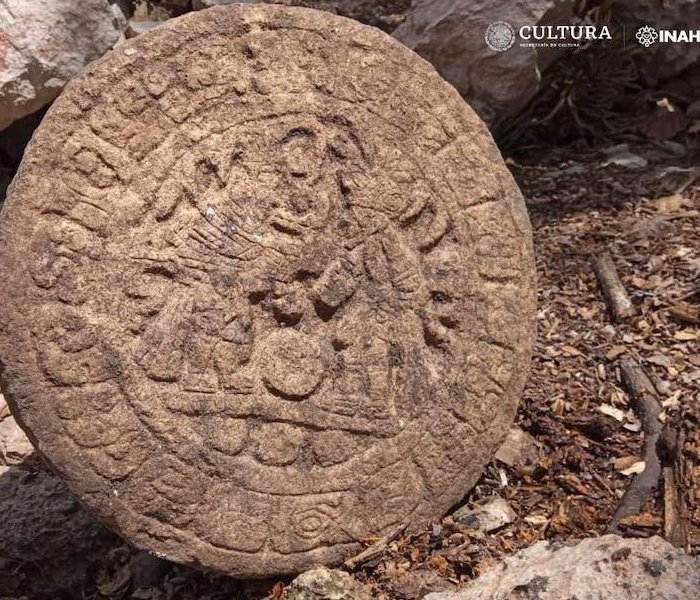Archaeologists Discover Ancient Mayan Board Game – Here’s What It Can Teach Modern Educators
AncientPages.com - Games have been played for thousands of years in cultures across the world.
There's the chequerboard game Senet, played in Egypt around BCE 3100. The African cup board game Mancala has been played since BCE 1400. Chess originated in India over 1,500 years ago. And the strategic game Go began in China 2,500 years ago.
The ball game marker discovered in Chichén Itzá. Credit: INAH
The Mayan civilization—which flourished in central America from BCE 2000 to 1500 AD—had several popular games. These games were thought to have the supernatural power to predict war. They include a cross-shaped board game called Patolli and a ball game called Pok-a-Tok.
Recently, a stone scoreboard was found by archaeologists in Chichén Itzá, Mexico's Yucatán peninsula. The Mayan people appeared to have used it to play a ritualistic game with a heavy ball.
This game held significant cultural and religious importance for the Mayan civilization. More than a simple recreational activity, it reflected the deep-rooted beliefs and values of the Mayan people. For Mayans, games provided a platform for the expression of physical abilities, the establishment of social order and the connection between the mortal and the divine.
The game discovered in Chichén Itzá symbolizes the delicate balance between light and darkness, embodying a cosmic struggle. Like other Mayan games, it was believed to influence the fate of harvests, the climate, communities and individuals.
In Mayan culture, winning a game like this was seen as a sign of divine favor. They believed that victorious people or teams had been chosen by the gods. Those who consistently lost were sometimes offered as sacrifices to the deities. Mayan games were not solely intended for entertainment, but served as ways to connect with the divine.
By participating in these games, Mayan people experienced a sense of communal identity and belonging. The rituals and beliefs associated with the games fostered a collective understanding and reinforced the connections between the physical, spiritual and social realms.
What educators can learn from ancient games
The concept of the "magic circle", introduced by Dutch historian Johan Huizinga, suggests that during games, players enter a temporary world with its own rules and boundaries.
This is exemplified in this Mayan find, which involves rules, suspension of normalcy and shared experiences.
The magic circle represents a ritual space that both transforms and builds a sense of community. Understanding of this concept can be used to promote inclusion and collaboration in modern day education. Playful experiences within game spaces can facilitate learning and create a sense of belonging, enabling students to grow and learn collectively.
Ancient rituals and games possess characteristics like repetition, structure and the use of symbolic objects that aid students in understanding the world. They also offer psychological and social benefits, fostering social bonds, reducing anxiety and improving cognitive flexibility and problem-solving skills.
Incorporating ancient and modern games in education promotes soft skills, critical thinking and inclusivity. In fostering communication, giving students agency, and crossing cultural divides, analogue games help students to understand one another better in the classroom.
Applying the lessons
The TEGA project, which we led, created a toolkit to support the development and customization of inclusive analogue games for learning, with an emphasis on accessibility.
Analogue games, like tabletop or board games, offer a tangible experience that helps teach abstract concepts which typically lack clear physical representations. Through interaction with game elements such as cards, dice and pieces, student players can grasp abstract ideas like probability and strategy more effectively than through digital games or other media.
By considering accessibility needs through their motor, sensory and cognitive dimensions, games can be designed to accommodate a wider range of students. So by incorporating board games into higher education, teachers can create a learning environments that works for all students.
Written by Sara Rye, Associate Professor, University of Bradford; Carla Sousa, Assistant professor, Lusófona University.
Provided by The Conversation
This article is republished from The Conversation under a Creative Commons license. Read the original article.
More From Ancient Pages
-
 Legend Of Ancient Princess Thone Pan Hla Who Is Believed To Haunt Pyay In Myanmar
Featured Stories | Aug 2, 2016
Legend Of Ancient Princess Thone Pan Hla Who Is Believed To Haunt Pyay In Myanmar
Featured Stories | Aug 2, 2016 -
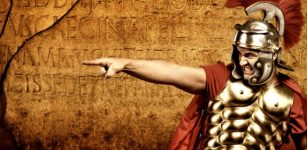 Meaning Of Ancient Hand Signs We Still Use Today
Ancient History Facts | Apr 22, 2021
Meaning Of Ancient Hand Signs We Still Use Today
Ancient History Facts | Apr 22, 2021 -
 Maori God Pourangahua And His Flying Bird Traversing The Ancient Skies
Featured Stories | Oct 4, 2015
Maori God Pourangahua And His Flying Bird Traversing The Ancient Skies
Featured Stories | Oct 4, 2015 -
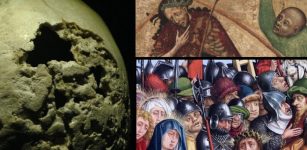 Manuscripts And Art Support Evidence That Syphilis Was In Europe Long Before Explorers Could Have Brought It Home
Featured Stories | Jul 15, 2022
Manuscripts And Art Support Evidence That Syphilis Was In Europe Long Before Explorers Could Have Brought It Home
Featured Stories | Jul 15, 2022 -
 Mysterious Ancient Female Society Discovered – What Happened To All The Men? Archaeologists Wonder
Featured Stories | Oct 3, 2024
Mysterious Ancient Female Society Discovered – What Happened To All The Men? Archaeologists Wonder
Featured Stories | Oct 3, 2024 -
 Countess Loretta Of Sponheim Kidnapped Archbishop Of Trier And Got Away With It
Featured Stories | Sep 26, 2018
Countess Loretta Of Sponheim Kidnapped Archbishop Of Trier And Got Away With It
Featured Stories | Sep 26, 2018 -
 Unexplained Mystery Of The Glowing Woman Who Baffled Scientists
Featured Stories | Jun 6, 2022
Unexplained Mystery Of The Glowing Woman Who Baffled Scientists
Featured Stories | Jun 6, 2022 -
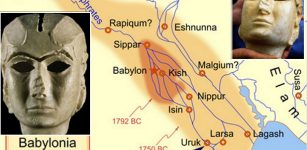 Sumerian ‘Mask Of Warka’ From Uruk: Sculptured Face May Depict Goddess Inanna
Featured Stories | Sep 15, 2016
Sumerian ‘Mask Of Warka’ From Uruk: Sculptured Face May Depict Goddess Inanna
Featured Stories | Sep 15, 2016 -
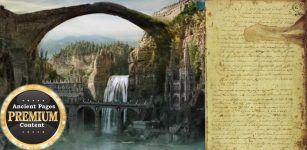 Mysterious Manuscript 512 Reveals Lost Ancient City Hidden In The Amazon Jungle
Ancient Mysteries | Jan 28, 2018
Mysterious Manuscript 512 Reveals Lost Ancient City Hidden In The Amazon Jungle
Ancient Mysteries | Jan 28, 2018 -
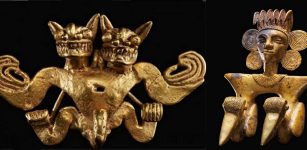 Mysterious Sophisticated Gran Coclé Culture Reveals Its Ancient Secrets
Civilizations | Mar 9, 2020
Mysterious Sophisticated Gran Coclé Culture Reveals Its Ancient Secrets
Civilizations | Mar 9, 2020 -
 Joseph Pujol – The Professional Farter Who Entertained People
Featured Stories | Jan 29, 2020
Joseph Pujol – The Professional Farter Who Entertained People
Featured Stories | Jan 29, 2020 -
 Ancient Mysteries And Curious Legends Of Chimney Rock And Grandfather Mountain In North Carolina
Featured Stories | Feb 5, 2024
Ancient Mysteries And Curious Legends Of Chimney Rock And Grandfather Mountain In North Carolina
Featured Stories | Feb 5, 2024 -
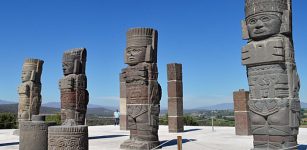 Obscure History Of Atlantean Statues In Ancient Toltecs’ City Of Tula
Artifacts | Oct 19, 2020
Obscure History Of Atlantean Statues In Ancient Toltecs’ City Of Tula
Artifacts | Oct 19, 2020 -
 Return Of Pahana – The Lost White Brother Of The Hopi And The Sacred Tablet
Myths & Legends | Mar 5, 2018
Return Of Pahana – The Lost White Brother Of The Hopi And The Sacred Tablet
Myths & Legends | Mar 5, 2018 -
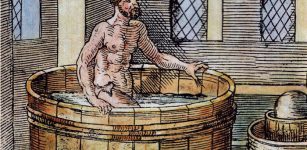 Who Said ‘Eureka’ First And Why?
Ancient History Facts | Feb 8, 2023
Who Said ‘Eureka’ First And Why?
Ancient History Facts | Feb 8, 2023 -
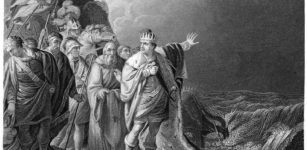 Cnut The Great – England’s Danish King And Ruler Of One Of The Largest Nordic Empires
Featured Stories | Jun 15, 2020
Cnut The Great – England’s Danish King And Ruler Of One Of The Largest Nordic Empires
Featured Stories | Jun 15, 2020 -
 Seti I – Remarkable Pharaoh Who Saved The Kingdom Of Egypt And Gave It New Glory
History | Jun 15, 2021
Seti I – Remarkable Pharaoh Who Saved The Kingdom Of Egypt And Gave It New Glory
History | Jun 15, 2021 -
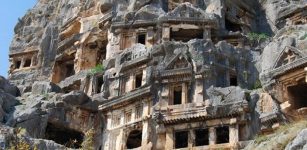 Magnificent Ancient Rock-Cut Lycian Tombs Of Myra, Antalya, Turkey
Civilizations | Aug 9, 2015
Magnificent Ancient Rock-Cut Lycian Tombs Of Myra, Antalya, Turkey
Civilizations | Aug 9, 2015 -
 Unexplained Mysteries Of The Superstition Mountains – A Gateway To Other Worlds?
Featured Stories | Dec 15, 2020
Unexplained Mysteries Of The Superstition Mountains – A Gateway To Other Worlds?
Featured Stories | Dec 15, 2020 -
 Why Were The Jews Exiled To Babylon?
Ancient History Facts | Jan 14, 2020
Why Were The Jews Exiled To Babylon?
Ancient History Facts | Jan 14, 2020

